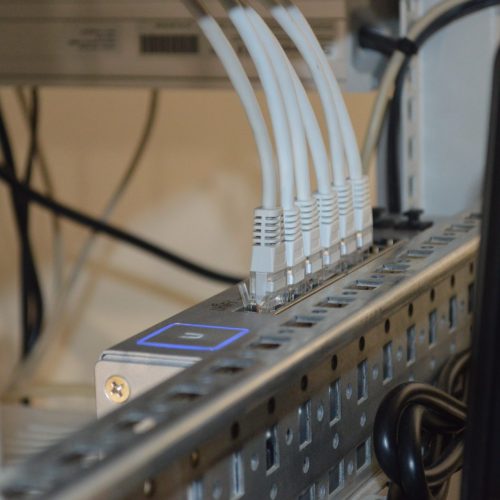Introduction
Network security is an important aspect of digital infrastructure that each individual and organization should take seriously. As we become increasingly hooked in to technology, the danger of cyber-attacks, data breaches, and malware infections also increases. during this article, we'll discuss the importance of network security and therefore the risks related to poor network security practices. we'll also provide steps to enhance your network security and best practices to stay your network secure.
Understanding Network Security
A. What's Network Security?
Network security refers to the measures taken to guard a network from unauthorized access or attacks that would compromise the integrity, confidentiality, and availability of the network and its resources. Network security involves the utilization of hardware and software technologies to stop, detect, and answer security threats.
B. Why is Network Security Important?
Network security is vital because it helps to guard sensitive data, prevent cyber-attacks, and ensure business continuity. A breach in network security can cause financial losses, damage to reputation, and legal liabilities. additionally, poor network security may result within the loss of property, trade secrets, and confidential business information.
C. Sorts of Network Security Threats
There are several sorts of network security threats, including:
1. Malware: Software designed to harm a computing system, like viruses, worms, and Trojan horses.
2. Phishing: a kind of social engineering attack that involves tricking users into divulging sensitive information, like usernames and passwords.
3. Denial of Service (DoS) attacks: a kind of attack that floods a network server with traffic, making it unavailable to legitimate users.
4. Man-in-the-Middle (MitM) attacks: a kind of attack that intercepts communication between two parties, allowing an attacker to eavesdrop or modify the communication.
5. Password attacks: Attempts to crack passwords using brute force or dictionary attacks.
The Risks of Poor Network Security
A. Cyber Attacks
Cyber-attacks are a big risk for people and organizations that don't take network security seriously. Cyber-attacks can cause the theft of sensitive information, like mastercard numbers, banking information, and private data. this will end in financial losses, fraud, and damage to reputation.
B. Data Breaches
Data breaches occur when sensitive information is stolen or accessed without authorization. Data breaches may result within the loss of property, trade secrets, and confidential business information. this will cause financial losses, legal liabilities, and damage to reputation.
C. Malware Infections
Malware infections can occur when a user downloads or installs software from an untrusted source. Malware can steal sensitive information, damage files, and compromise the safety of the network.
Steps to enhance Your Network Security
A. Password Management
Password management involves using strong and unique passwords for each account and changing them regularly. Passwords should be a mixture of upper and lowercase letters, numbers, and symbols.
B. Firewalls and Antivirus Software
Firewalls and antivirus software are essential tools for shielding your network from cyber-attacks and malware infections. Firewalls block unauthorized access to your network, while antivirus software detects and removes malware.
C. Encryption
Encryption is that the process of converting information into a code which will only be deciphered by authorized parties. Encryption can protect your sensitive data from being intercepted by unauthorized parties.
D. Regular Updates and Patches
Regular updates and patches are essential for maintaining the safety of your network. Software updates and patches often include security fixes that address known vulnerabilities.
E. Employee Education and Training
Employee education and training are essential for maintaining the safety of your network. Employees should be trained on network security best practices, like password management and the way to spot and report suspicious activity.
Best Practices for Network Security
A. Use Strong Passwords
Use strong and unique passwords for each account and alter them regularly.
B. Limit Access to Your Network
Limit access to your network to only authorized users.
C. Backup Your Data Regularly
Backup your data regularly to guard against data loss within the event of a breach or malware infection.
D. Keep Your Software Up so far
Regularly update your software to make sure that it includes the newest security patches and fixes.
E. Use a Virtual Private Network (VPN)
A virtual private network (VPN) can provide a secure connection to your network when accessing it remotely.
Conclusion
Network security is an important aspect of digital infrastructure that each individual and organization should take seriously. Poor network security practices may result in financial losses, damage to reputation, and legal liabilities. By following the steps to enhance your network security and best practices, you'll protect your network from cyber-attacks, data breaches, and malware infections.
